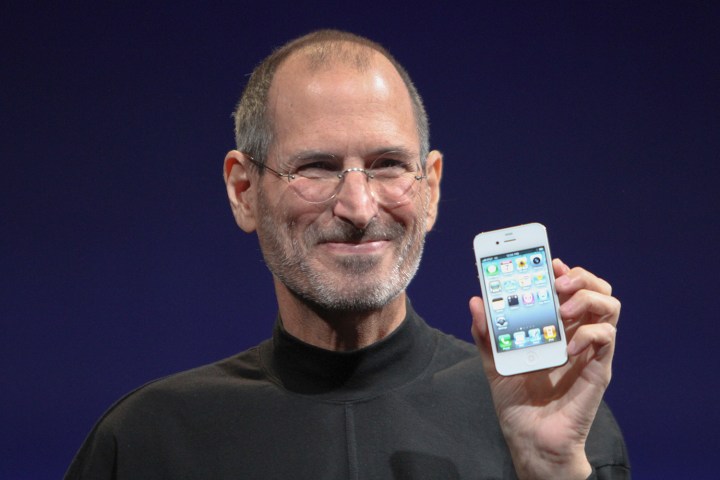
In an insightful Facebook post, Doom creator John Carmack looked back on working with the late Steve Jobs. Prior to the iPhone, Apple products were never really seen as gaming destinations. Despite the popularity of early Apple computers, video game development and Apple had never quite coalesced. Carmack’s recollection of Jobs’ mindset about games at least partially explains why one of the biggest tech companies in the world has routinely avoided one of the most popular entertainment mediums around.
Carmack looked up to Jobs and Apple co-founder Steve Wozniak growing up. After Carmack’s Id Software venture looked promising after the release of Wolfenstein 3D, Carmack’s first major purchase was a NeXT computer. NeXT was the company Jobs started after leaving Apple in 1985.
Carmack was so taken by NeXT computers that they became the official hardware for Id Software. As Id prepared for the launch of Doom, Carmack wanted to include a logo championing that the game was developed on NeXT computers. Jobs denied the request, but after Doom launched, Jobs, apparently having second thoughts, emailed Carmack.
After Apple and NeXT became one, Carmack came aboard to talk about the future of games on Apple platforms. According to Carmack, working alongside Jobs wasn’t easy.
“Several things over the years made me conclude that, at his core, Steve didn’t think very highly of games, and always wished they weren’t as important to his platforms as they turned out to be,” Carmack wrote.
Jobs fought him on the type of graphics Apple products should use for gaming purposes, but eventually Jobs agreed to Carmack’s OpenGL request, which Carmack sees as one of his biggest contributions to the industry.
Carmack and Jobs delivered multiple keynote addresses together, though Carmack recalled that Jobs didn’t want Doom 3 to be demoed on Mac during a 2001 keynote. Jobs didn’t like the amount of blood being shown, though he eventually broke down and allowed it.
Perhaps Carmack’s most important battle with Jobs regarded iPhone apps, which Carmack technically had no involvement with. Jobs originally wanted the iPhone to use web apps instead of native apps. Carmack stressed that this would be a bad idea. It was around this time that Carmack and Jobs had a falling out.
Of course, Carmack’s opinion was eventually the one Apple went with, and the App Store came to life.
While Carmack’s anecdotes about Jobs confirm the tech pioneer’s stubbornness and abrasiveness, they also show that Jobs could be receptive to ideas — at least after being prodded over an extended period of time.
And although Apple houses one of the most popular gaming platforms, it’s readily apparent that the company has more or less retained Jobs’ relative aversion to the medium. Just look at Apple computers. Sure, some great games can be played on Macs, but Macs aren’t, and probably never will be, viewed as gaming destinations.


